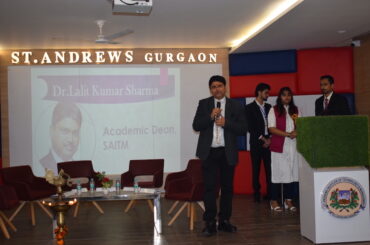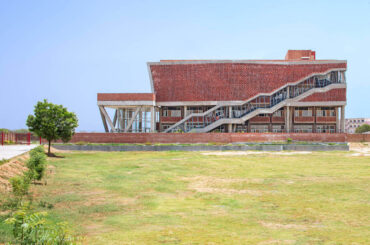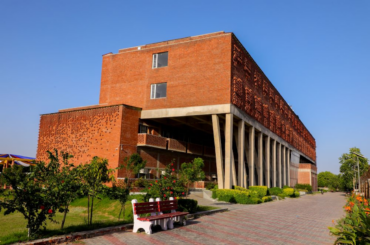MCA Full Form
The full form of MCA is Master of Computer Applications. MCA is a postgraduate degree in the field of computer science and information technology.
The MCA curriculum covers subjects like programming languages, database management systems, software engineering, web technologies, and mobile application development. It also emphasizes practical experience through project work, internships, and lab sessions, ensuring that students gain hands-on skills in various IT domains.
MCA graduates, with an understanding of the MCA Full Form, are well-prepared for careers in software development, systems analysis, web design, data science, cybersecurity, and IT consulting. They are highly sought after in both public and private sectors, with opportunities in tech companies, financial institutions, government agencies, and more.
The MCA degree is ideal for those who have a strong interest in computer science and wish to build a career in the fast-evolving IT industry. It provides a solid foundation for advanced roles and positions in the technology sector.
Some of the most opted courses in India and St. Andrews college or different Engineering college or Management colleges are as follows:-
MCA Courses Details

The MCA Full Form, Master of Computer Applications, is a postgraduate program aimed at equipping students with the skills needed for successful careers in computer science and information technology.
Here’s a detailed overview of MCA courses:
Course Duration
Typically, the MCA course is a three-year course, divided into six semesters. Some institutions offer a two-year program for students who have completed a BCA or equivalent degree.
Eligibility Criteria
Educational Qualification: Candidates should have a Bachelor’s degree in Computer Science, Computer Applications, or a related field. Some universities accept candidates from any discipline, provided they have studied Mathematics at the 10+2 level or during their undergraduate course.
MCA Entrance Exams: Many universities require candidates to clear entrance exams such as NIMCET, MAH MCA CET, or university-specific tests.
Course Structure
The MCA curriculum is designed to provide both theoretical and practical knowledge in various areas of computer science.
The course structure typically includes the following:
Core Subjects
Programming Languages (e.g., C, C++, Java, Python)
Data Structures and Algorithms
Database Management System (DBMS)
Operating Systems
Software Engineering
Web Technologies
Object-Oriented Programming
Mobile Application Development
Artificial Intelligence and Machine Learning
Data Science and Big Data Analytics
Cybersecurity
Elective Subjects
Students can choose electives based on their interests and career goals. Some popular electives include:
Cloud Computing
Blockchain Technology
Advanced Database Management
Natural Language Processing
Human-Computer Interaction
Digital Image Processing
Practical Labs
MCA programs include lab sessions that provide hands-on experience in:
Programming
Database Management
Software Engineering
Network Configuration
Web Development
Mobile App Development
Projects and Internships
Mini Projects: These are typically done in the middle of the course, focusing on applying theoretical knowledge to real-world problems.
Major Project/Thesis: In the final year, students undertake a significant project, often in collaboration with industry partners, which involves comprehensive research, development, and implementation.
Internships: Many programs include internships, allowing students to gain industry experience and apply their skills in a professional setting.
Specializations
Some MCA programs offer specializations in areas such as:
Software Engineering
System Management
Networking
Data Science
Artificial Intelligence
Cybersecurity
Cloud Computing
Mobile Computing
Assessment and Evaluation
Examinations: Semester-end exams are conducted for each subject, including both theoretical and practical components.
Assignments: Regular assignments are given to assess the understanding of course material.
Project Work: Students are evaluated based on their project work, which includes both the development process and final deliverable.
Career Opportunities
MCA graduates can pursue a variety of roles, including:
Software Engineer
System Analyst
Database Administrator
Network Engineer
Web Developer
Data Scientist
IT Consultant
Project Manager
Cybersecurity Analyst
Top Recruiters
IT Companies: TCS, Infosys, Wipro, HCL, IBM
Tech Startups
E-commerce Companies: Amazon, Flipkart
Financial Institutions
Government and Public Sector Organizations
Higher Studies and Certifications
Ph.D. in Computer Science
Specialized Certifications (e.g., AWS, Google Cloud, Data Science certifications)
Fees Structure
The fee for MCA programs varies by institution but typically ranges from INR 50,000 to INR 3,00,000 per year in India.
Benefits of purusing MCA
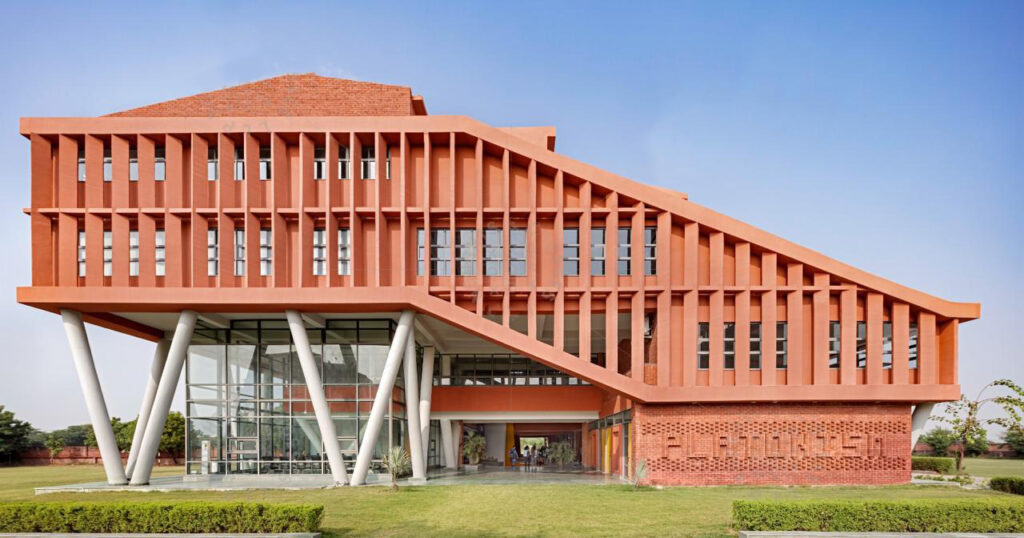
After a student pursue MCA (Master of Computer Applications) it offers several benefits, particularly for those looking to build a career in the IT industry.
Here are some of the key advantages to pursue MCA:
Comprehensive Knowledge and Skills
MCA provides in-depth knowledge of computer applications, programming languages, dbms, networking, and more. This extensive curriculum equips students with the technical skills needed to excel in the IT field.
Diverse Career Opportunities
MCA graduates have a wide range of career options, including roles such as software engineer, systems analyst, data scientist, network engineer, web developer, and IT consultant. The versatility of the degree allows graduates to work in various industries.
High Demand in the Job Market
The IT industry is constantly evolving, and there is a consistent demand for skilled professionals. MCA graduates are well-positioned to take advantage of this demand, leading to better job prospects and higher salaries.
Specialization Opportunities
MCA programs often offer specializations in areas like cybersecurity, data science, artificial intelligence, cloud computing, and computer application development. This allows students to focus on specific fields of interest and become experts in niche areas.
Strong Foundation for Advanced Roles
An MCA degree prepares graduates for advanced roles in IT management, project leadership, and strategic planning. It also provides a solid foundation for those interested in pursuing further studies, such as a Ph.D. or certifications in specialized IT fields.
Practical Experience
MCA programs typically include internships, project work, and lab sessions that offer hands-on experience. This practical exposure helps students apply theoretical knowledge in real-world scenarios, making them job-ready upon graduation.
Networking Opportunities
While pursuing an MCA, students often get the chance to interact with industry professionals, attend workshops, and participate in tech conferences. These opportunities help in building a professional network, which can be beneficial for career growth.
Increased Earning Potential
With the advanced skills and knowledge gained through an MCA, graduates often command higher salaries compared to those with only a bachelor’s degree in computer science or related fields. The potential for career advancement and salary growth is significant.
Global Opportunities
The IT skills acquired during an MCA are globally relevant, allowing graduates to pursue job opportunities not only in India but also internationally. The degree is recognized and valued across the world, opening doors to a global career.
Job Stability
The IT industry is one of the most stable and fast-growing sectors globally. MCA graduates benefit from job security, as the demand for IT professionals continues to rise with advancements in technology.
Skills Developed after MCA
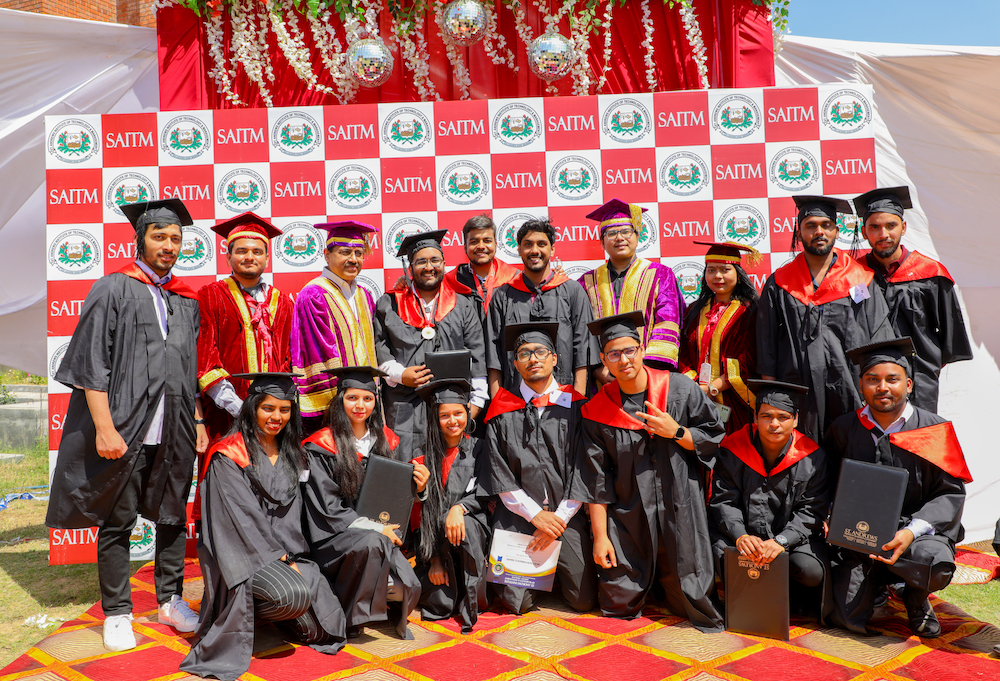
After completing an MCA (full form Master of Computer Applications), students develop a broad range of skills that are crucial for success in the IT industry.
Here are some of the key skills gained:
Programming Skills
Proficiency in various programming languages such as Java, Python, C++, C#, and JavaScript, enabling the development of software applications, websites, and mobile apps.
Software Engineering
Knowledge of software development life cycles (SDLC), methodologies like Agile and Scrum, and the ability to design, develop, test, and maintain software applications.
DBMS
Expertise in database design, SQL, and management systems like MySQL, Oracle, and MongoDB, enabling effective data storage, retrieval, and management.
System Analysis and Design
Skills in analyzing user requirements, designing system architectures, and creating efficient software systems that meet organizational needs.
Web Development:
Proficiency in front-end and back-end web development, using technologies like HTML, CSS, JavaScript, Angular, React, PHP, and ASP.NET.
Networking and Security
Understanding of computer networks, protocols, and cybersecurity principles to protect systems and data from threats and vulnerabilities.
Data Science and Analytics
Ability to work with data analytics tools, machine learning algorithms, and big data technologies to extract insights and drive decision-making.
Mobile Application Development ;
Skills in developing mobile apps for Android and iOS platforms using tools like Android Studio, Swift, and React Native.
Cloud Computing
Knowledge of cloud platforms such as AWS, Azure, and Google Cloud, including cloud architecture, deployment, and services.
Project Management
Skills in managing IT projects, including planning, resource allocation, risk management, and coordination of teams to deliver projects on time and within budget.
Problem-Solving
Enhanced analytical and problem-solving abilities to identify issues, devise solutions, and optimize processes in software and system development.
Team Collaboration
Experience in working within collaborative environments, understanding the dynamics of team-based projects, and communicating effectively with stakeholders.
Software Testing and Quality Assurance
Proficiency in various testing methodologies and tools to ensure software quality, including unit testing, integration testing, and automated testing.
Artificial Intelligence and Machine Learning
Basic to advanced knowledge of AI and ML concepts, algorithms, and applications, enabling the development of intelligent systems and automation solutions.
User Interface (UI) and User Experience (UX) Design
Skills in designing intuitive, user-friendly interfaces and enhancing the overall user experience of software applications and websites.
Technical Writing and Documentation
Ability to create clear, concise technical documentation, manuals, and reports that are essential for software maintenance and user support.
Entrepreneurial Skills
For those interested in startups or tech entrepreneurship, the program provides foundational knowledge in business processes, product development, and market strategies.
MCA Specialisations
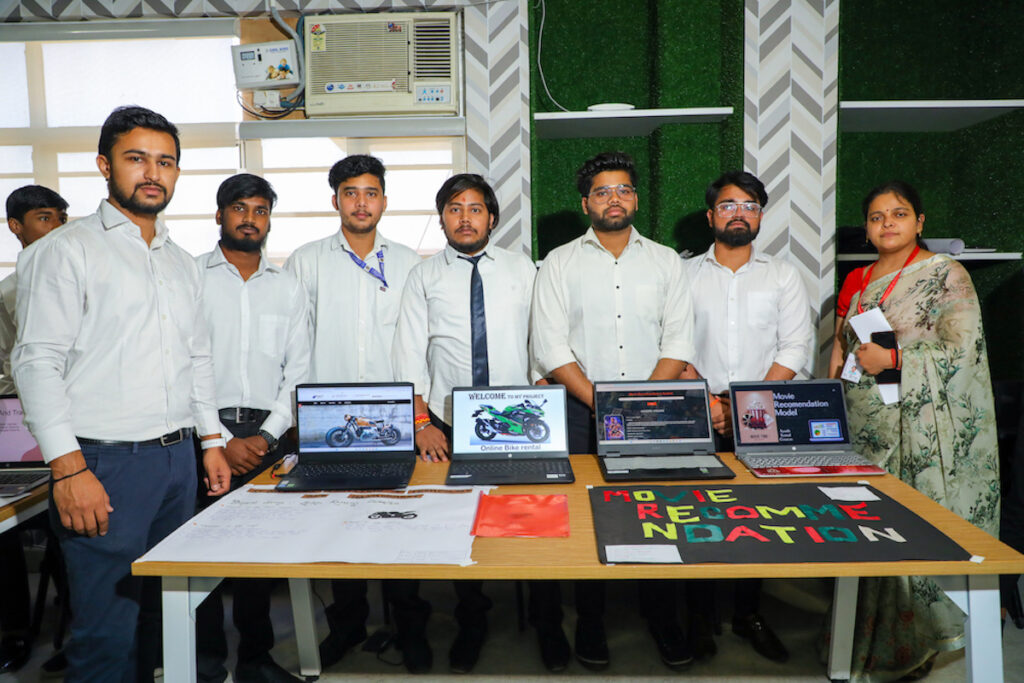
The MCA Full Form, Master of Computer Applications, degree often offers various specializations, enabling students to focus on specific areas of interest within computer science and IT.
Here are some of the common specializations available in MCA degree:
Software Development
Focus: Designing, coding, testing, and maintaining software applications.
Key Topics: Software engineering, object-oriented programming, agile development, and software project management.
Career Opportunities: Software Engineer, application programmer, software tester, software architect.
Data Science
Focus: Analyzing large datasets to extract meaningful insights and support decision-making.
Key Topics: Data mining, machine learning, big data technologies, statistical analysis, and data visualization.
Career Opportunities: Data scientist, data analyst, business intelligence analyst, machine learning engineer.
Cybersecurity
Focus: Protecting systems, networks, and data from cyber threats and vulnerabilities.
Key Topics: Network security, ethical hacking, cryptography, information security management, and cybersecurity laws.
Career Opportunities: Cybersecurity analyst, ethical hacker, security consultant, information security manager.
Artificial Intelligence (AI)
Focus: Developing intelligent systems capable of learning, reasoning, and problem-solving.
Key Topics: Machine learning, neural networks, natural language processing, robotics, and AI ethics.
Career Opportunities: AI engineer, machine learning specialist, data scientist, AI researcher.
Cloud Computing ;
Focus: Managing and deploying applications and services in the cloud.
Key Topics: Cloud architecture, cloud service models (IaaS, PaaS, SaaS), virtualization, cloud security, and DevOps.
Career Opportunities: Cloud architect, cloud engineer, DevOps engineer, cloud consultant.
Mobile Application Development
Focus: Creating and optimizing applications for mobile devices.
Key Topics: Android development, iOS development, mobile UI/UX design, cross-platform app development, and mobile security.
Career Opportunities: Mobile app developer, iOS/Android developer, mobile UI/UX designer.
Networking
Focus: Designing, implementing, and managing computer networks.
Key Topics: Network protocols, network design, wireless communication, network security, and network administration.
Career Opportunities: Network engineer, network administrator, network architect, IT support specialist.
System Management
Focus: Managing and optimizing IT systems and infrastructure within an organization.
Key Topics: Systems analysis, IT project management, systems integration, enterprise resource planning (ERP), and IT service management.
Career Opportunities: System administrator, IT manager, ERP consultant, IT project manager.
Web Development ;
Focus: Designing, developing, and maintaining websites and web applications.
Key Topics: Front-end development, back-end development, web frameworks (e.g., React, Angular), web security, and e-commerce development.
Career Opportunities: Web developer, full-stack developer, front-end developer, web designer.
Database Management
Focus: Designing, implementing, and managing databases to store and retrieve data efficiently.
Key Topics: SQL, NoSQL databases, database design, data warehousing, and database security.
Career Opportunities: Database administrator, data architect, SQL developer, database manager.
Business Analytics
Focus: Applying data analytics to solve business problems and drive strategic decisions.
Key Topics: Business intelligence, predictive analytics, data visualization, and decision support systems.
Career Opportunities: Business analyst, data analyst, BI developer, management consultant.
Game Development
Focus: Creating and designing video games for various platforms.
Key Topics: Game design, 2D/3D animation, game programming, game engines (e.g., Unity, Unreal Engine), and virtual reality (VR).
Career Opportunities: Game developer, game designer, 3D artist, VR/AR developer.
Human-Computer Interaction (HCI)
Focus: Enhancing the interaction between users and computers through effective interface design.
Key Topics: UI/UX design, user research, interaction design, accessibility, and usability testing.
Career Opportunities: UX designer, UI designer, interaction designer, usability analyst.
MCA Programs Admission Process
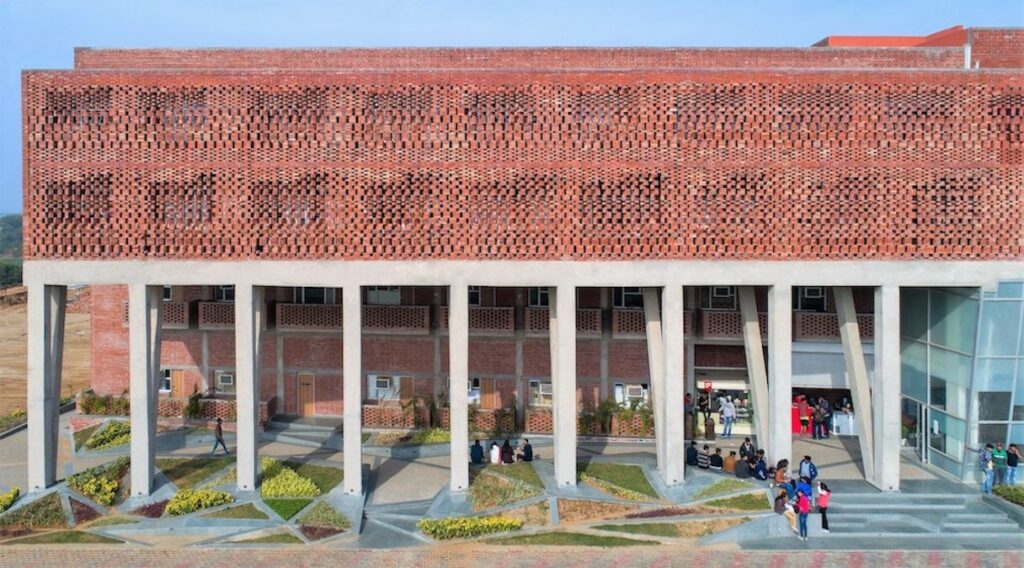
The admission process for the Master of Computer Applications (MCA) program typically involves several steps, including meeting eligibility criteria, appearing for entrance exams, and participating in counseling or interviews.
Here’s a detailed overview of the MCA degree admission process:
Eligibility Criteria:
Educational Qualification:
Candidates must have a Bachelor’s degree (preferably in Computer Science, Computer Applications, or related fields) from a recognized university.
Many institutions require candidates to have studied Mathematics at the 10+2 level or during their undergraduate studies.
Minimum Marks:
Candidates generally need to secure a minimum percentage (usually around 50%–60%) in their undergraduate degree. The exact requirement may vary by institution.
Age Limit:
There is usually no specific age limit for MCA admission, although some universities may have age-related criteria.
Entrance Exams
National-Level Entrance Exams:
Some of the popular national-level entrance exams for MCA degree include NIMCET (National Institute of Technology MCA Common Entrance Test), AIMCET (All India MCA Common Entrance Test), and others.
State-Level Entrance Exams:
States like Maharashtra, West Bengal, and Tamil Nadu conduct their own entrance exams, such as MAH MCA CET (Maharashtra), WB JECA (West Bengal), and TANCET (Tamil Nadu).
University-Specific Entrance Exams:
Many universities conduct their own entrance tests, such as JNU MCA Entrance, DU MCA Entrance, BHU PET, and others.
Application Process
Online Registration:
Candidates must register on the official website of the entrance exam or the university’s admission portal.
Filling the Application Form:
Fill out the application form with personal details, academic qualifications, and choice of examination centers.
Uploading Documents:
Upload scanned copies of required documents, such as photographs, signatures, and academic certificates.
Application Fee Payment:
Pay the application fee online through net banking, credit/debit cards, or other specified methods.
Submission:
After completing the form and payment, submit the application form online and keep a copy of the confirmation for future reference.
Entrance Exam Preparation
Syllabus:
The syllabus generally includes topics such as Mathematics (up to 12th standard), Computer Awareness, Logical Reasoning, and English Language Proficiency.
Study Materials:
Candidates should refer to recommended books, previous years’ question papers, and online resources for preparation.
Mock Tests:
Taking mock tests can help in understanding the exam pattern and improving time management.
Entrance Exam
Exam Format:
The entrance exam is usually a computer-based test (CBT) or paper-based test (PBT) with multiple-choice questions (MCQs).
Duration:
The exam typically lasts 2–3 hours.
Scoring and Results:
The results are announced online, and candidates can check their scores by logging into the official portal.
Counseling Process
Merit List:
Based on the entrance exam scores, a merit list is prepared by the conducting authority or university.
Counseling Registration:
Eligible candidates need to register for the counseling process, which may involve filling in choices of preferred colleges and courses.
Document Verification:
Candidates must submit their original documents for verification, including mark sheets, entrance exam scorecards, identity proof, and other required certificates.
Seat Allotment:
Seats are allotted based on the candidate’s rank, preferences, and availability. Some universities may conduct additional rounds of counseling if needed.
Payment of Fees:
After seat allotment, candidates need to pay the admission fees to confirm their seats.
Reporting to the College:
Finally, candidates must report to the allotted college within the specified time frame to complete the admission process.
Direct Admission
Management Quota:
Some private institutions offer direct admission under management quota, which may not require entrance exam scores but typically involves higher fees.
Merit-Based Admission:
Some colleges admit students based on their undergraduate academic performance without an entrance exam, depending on the institution’s criteria.
Key Documents Required
10th and 12th Mark Sheets and Certificates
Bachelor’s Degree Mark Sheets and Certificate
Entrance Exam Scorecard
Caste Certificate (if applicable)
Domicile Certificate (if applicable)
Passport-sized Photographs
Identity Proof (Aadhar Card, Passport, etc.)
MCA Syllabus
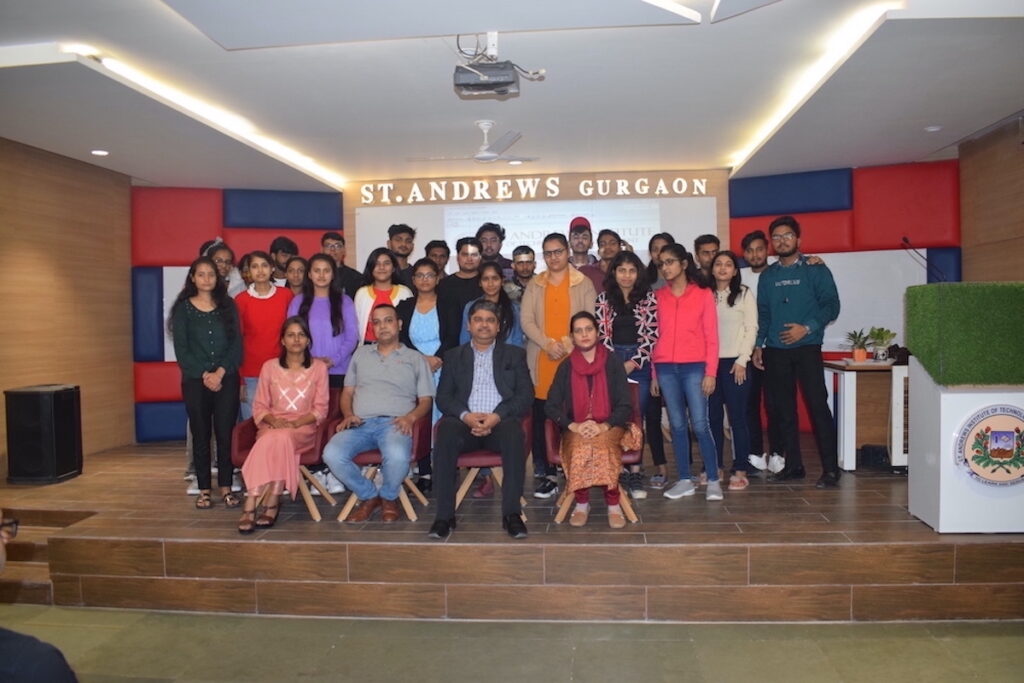
The syllabus for the Master of Computer Applications (MCA course) typically includes a mix of core subjects, electives, and practical work designed to provide comprehensive knowledge and skills in computer applications. The syllabus may vary slightly depending on the institution, but generally, it covers the following areas:
First Year
Semester 1
Mathematics for Computer Science: Linear Algebra, Calculus, Probability, and Statistics.
Computer Organization and Architecture: Computer Components, CPU, Memory Hierarchy, Instruction Set Architecture, and I/O Systems.
Programming Principles and Algorithms: Programming in C/C++, Algorithms, Data Structures (arrays, stacks, queues, linked lists, trees, graphs), Sorting and Searching Algorithms.
DBMS: Database Models, SQL, Relational Algebra, Normalization, Transactions, and Concurrency Control.
Computer Networks: OSI Model, TCP/IP Protocol Suite, Network Devices, Routing and Switching, Network Security.
Professional Communication: Technical Writing, Presentation Skills, Communication Skills.
Semester 2
Object-Oriented Programming (OOP): Classes and Objects, Inheritance, Polymorphism, Encapsulation, and OOP Principles in Java or C++.
Operating Systems: Process Management, Memory Management, File Systems, Scheduling Algorithms, Deadlocks.
Software Engineering: Software Development Life Cycle (SDLC), Requirements Analysis, Design, Testing, and Maintenance.
Web Technologies: HTML, CSS, JavaScript, PHP, ASP.NET, Web Servers, and Databases.
Data Communication: Transmission Media, Modulation, Error Detection and Correction, Data Link Control Protocols.
Mathematics for Computer Science – II: Discrete Mathematics, Graph Theory, Combinatorics.
Second Year
Semester 3
Advanced Data Structures: Balanced Trees (AVL, Red-Black), Hashing, Heaps, Graph Algorithms.
Design and Analysis of Algorithms: Algorithmic Techniques (Divide and Conquer, Greedy, Dynamic Programming), Complexity Analysis.
Software Project Management: Project Planning, Scheduling, Risk Management, Quality Assurance, Agile and Scrum.
Mobile Computing: Mobile Platforms (Android, iOS), Mobile App Development, Mobile Networks, Mobile Security.
Elective 1: Electives may include topics like Cloud Computing, Artificial Intelligence, Cybersecurity, etc.
Mini Project: Practical implementation of a small-scale project relevant to the learned concepts.
Semester 4
Advanced DBMS: NoSQL Databases, Distributed Databases, Data Warehousing, Big Data Technologies.
Artificial Intelligence: Search Algorithms, Knowledge Representation, Machine Learning Basics, Expert Systems.
Cloud Computing: Cloud Architecture, Cloud Services (IaaS, PaaS, SaaS), Virtualization, Cloud Security.
Elective 2: Electives may include topics like Game Development, Human-Computer Interaction, Business Analytics, etc.
Major Project: Comprehensive project involving significant research, development, and implementation of a solution or application.
Industrial Training/Internship: Practical experience in a real-world setting, exposure to industry practices and technologies.
Third Year
Semester 5
Computer Vision and Image Processing: Image Filtering, Feature Extraction, Object Recognition, and Image Compression.
Network Security: Cryptography, Network Attacks, Security Protocols, Firewalls, Intrusion Detection Systems.
Big Data Analytics: Big Data Technologies (Hadoop, Spark), Data Analysis, Data Visualization.
Elective 3: Electives may include topics like Virtual Reality, Blockchain Technology, Advanced Web Development, etc.
Major Project Continuation: Continued work on the major project with advanced research and development.
Semester 6
Project Work and Dissertation: Completion and documentation of the major project or dissertation, presenting the final work.
Comprehensive Viva Voce: Oral examination covering the entire MCA degree syllabus and project work.
Top Colleges for MCA Courses
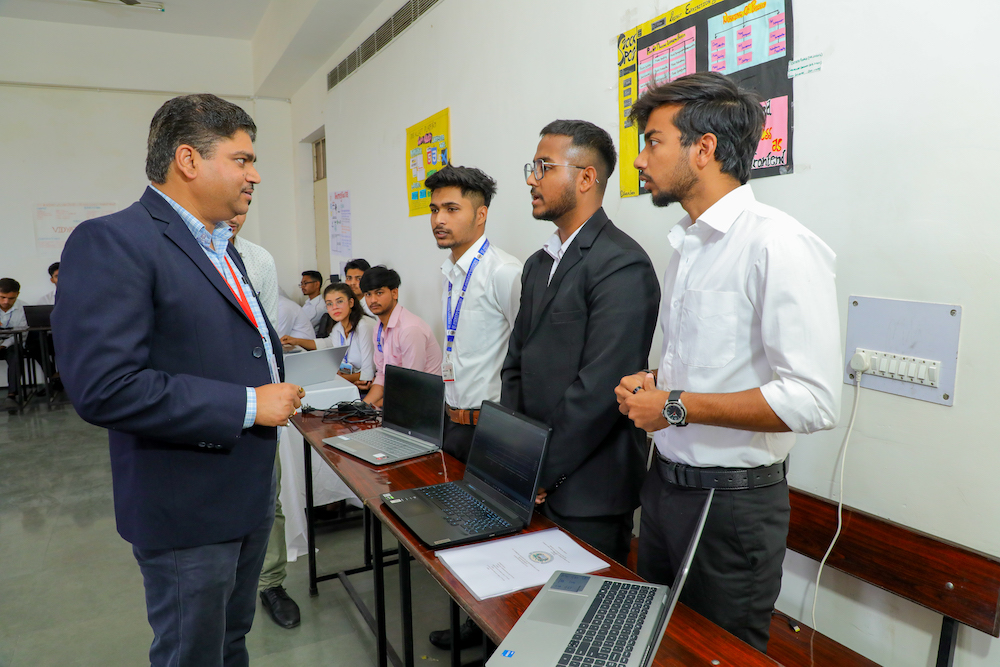
Here’s a list of some top MCA degree colleges in India:
St. Andrews Institute of Technology and Management (SAITM), Gurgaon
- Overview: Known for various undergraduate and postgraduate programs.
- Program: MCA Course
- Eligibility: Minimum 50% marks in graduation.
- Admission: Counseling starts in April for the August session.
- Facilities: Well-equipped labs, libraries, student accommodations.
- Placement: Good record with reputable IT firms.
Jawaharlal Nehru University (JNU), Delhi
- Overview: Prestigious university known for rigorous academics and strong research focus.
- Program: MCA Course
- Eligibility: UG degree with Mathematics.
- Admission: MCA Entrance exams conducted by JNU.
- Facilities: Modern labs, libraries, hostels.
- Placement: Excellent record with top IT companies.
University of Hyderabad (UoH), Hyderabad
- Overview: Premier institution offering high-quality education and strong faculty base.
- Program: MCA Degree
- Eligibility: UG degree with Mathematics.
- Admission: Entrance test conducted by UoH.
- Facilities: State-of-the-art labs, libraries, research facilities.
- Placement: Strong support with reputed companies.
Banaras Hindu University (BHU), Varanasi
- Overview: One of the oldest and renowned universities in India.
- Program: MCA Degree
- Eligibility: UG degree with Mathematics.
- Admission: Based on BHU PET (Postgraduate Entrance Test).
- Facilities: Well-equipped labs, libraries, hostels.
- Placement: Good opportunities with leading IT firms.
Motilal Nehru National Institute of Technology (MNNIT), Allahabad
- Overview: Prestigious NIT with a strong focus on practical and academic knowledge.
- Program: MCA
- Eligibility: UG degree with Mathematics/Statistics.
- Admission: NIMCET entrance exam.
- Facilities: Modern labs, extensive libraries, campus accommodation.
- Placement: Excellent record with top companies.
Delhi University (DU), Delhi
- Overview: Highly sought-after university with a rigorous MCA program.
- Program: MCA
- Eligibility: UG degree with Mathematics.
- Admission: Entrance exam conducted by DU.
- Facilities: Advanced computer labs, libraries, various amenities.
- Placement: Strong support with numerous IT companies.
Pondicherry University, Puducherry
- Overview: Central university known for a robust MCA program.
- Program: MCA
- Eligibility: UG degree with Mathematics.
- Admission: Entrance test conducted by the university.
- Facilities: Well-equipped labs, libraries, hostels.
- Placement: Good opportunities with IT and software companies.
University of Pune (Savitribai Phule Pune University), Pune
- Overview: Premier university with a well-regarded MCA program.
- Program: MCA
- Eligibility: UG degree with Mathematics.
- Admission: Entrance exam conducted by the university.
- Facilities: State-of-the-art labs, libraries, student accommodations.
- Placement: High placement rates with leading IT companies.
Aligarh Muslim University (AMU), Aligarh
- Overview: Historic university focused on research and academic excellence.
- Program: MCA
- Eligibility: UG degree with Mathematics.
- Admission: Entrance test conducted by AMU.
- Facilities: Modern labs, extensive libraries, on-campus housing.
- Placement: Good support with reputable IT firms.
Career Opportunities for MCA Degree Holders
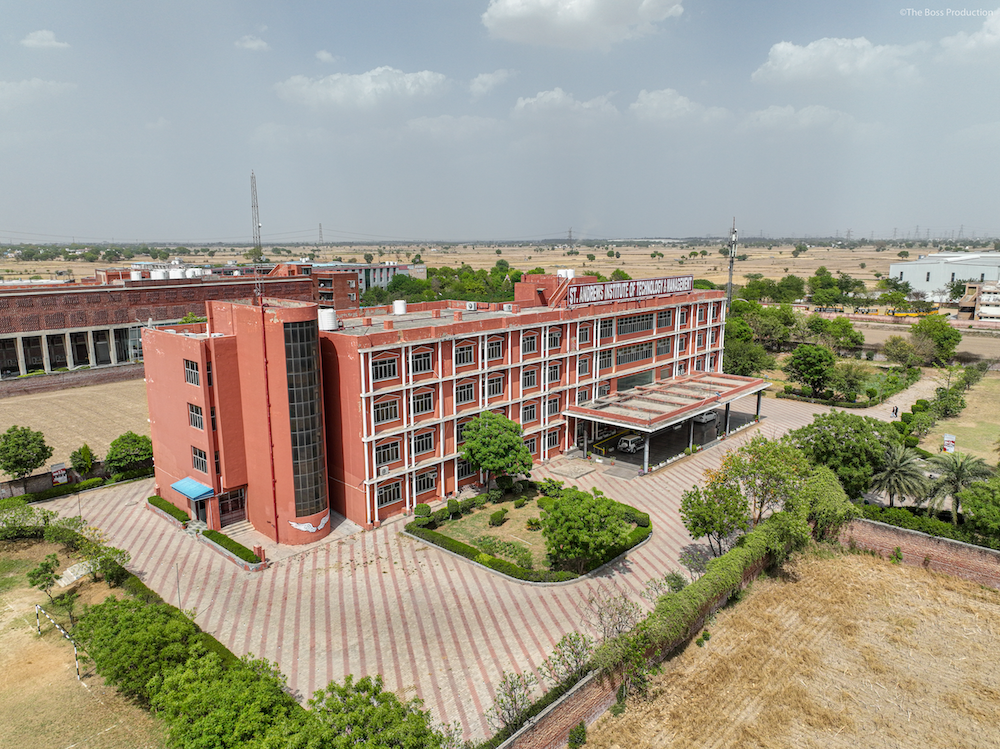
MCA (Master of Computer Applications) graduates have a diverse range of career opportunities in the technology sector and beyond.
Here are some key career paths and roles for MCA students:
Software Engineer
Role: Design, develop, and maintain software applications and systems.
Skills: Programming, software engineering principles, problem-solving.
Systems Analyst
Role: Analyze and improve computer systems and processes for businesses.
Skills: Systems analysis, project management, communication.
Web Developer
Role: Create and maintain websites and web applications.
Skills: Web technologies (HTML, CSS, JavaScript), front-end and back-end development.
DB Administrator
Role: Manage and maintain databases, ensuring their security and efficiency.
Skills: Database management systems (DBMS), SQL, data modeling.
Network Administrator
Role: Oversee and manage computer network within an organization.
Skills: Network configuration, troubleshooting, network security.
Information Security Analyst
Role: Protect an organization’s computer systems and networks from cyber threats.
Skills: Cybersecurity, risk assessment, knowledge of security protocols.
IT Consultant
Role: Provide expert advice on IT solutions and strategies to businesses.
Skills: Technical knowledge, consulting skills, business acumen.
Project Manager
Role: Manage IT projects, ensuring they are completed on time and within budget.
Skills: Project management, leadership, organizational skills.
Data Scientist
Role: Analyze and interpret complex data to help organizations make informed decisions.
Skills: Data analysis, machine learning, statistical tools.
Cloud Computing Specialist
Role: Manage and implement cloud-based solutions and services.
Skills: Cloud platforms (AWS, Azure, Google Cloud), virtualization.
Top Recruiters for MCA Course
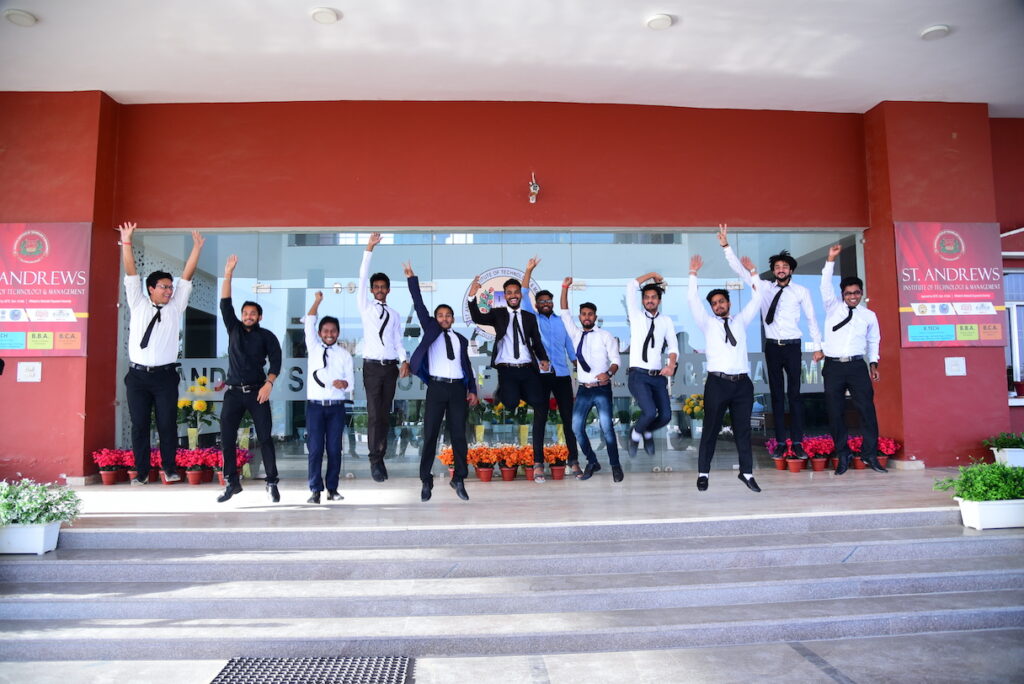
MCA students are sought after by numerous top companies across various sectors.
Here are some of the leading recruiters for MCA alumni:
Tata Consultancy Services (TCS)
Industry: IT Services and Consulting
Overview: A global leader in IT services, TCS offers diverse opportunities for MCA alumni.
Infosys
Industry: IT Services and Consulting
Overview: Infosys provides a wide range of IT services and consulting solutions.
Wipro
Industry: IT Services and Consulting
Overview: Wipro is known for its IT and business process services and offers career opportunities in software engineering, project management, and technology consulting.
Cognizant
Industry: IT Services and Consulting
Overview: Cognizant provides IT services and consulting and recruits MCA for software engineering, business analysis, and IT project management roles.
HCL Technologies
Industry: IT Services and Consulting
Overview: HCL offers opportunities in software engineering, IT consulting.
IBM
Industry: IT Services and Consulting
Overview: IBM hires MCA students for roles in software engineering, cloud computing, and data analytics.
Accenture
Industry: Consulting and Professional Services
Overview: Accenture provides consulting and technology services.
Capgemini
Industry: IT Services and Consulting
Overview: Capgemini offers consulting, technology services, and digital transformation.
Oracle
Industry: IT Services and Cloud Computing
Overview: Oracle is a leading provider of database and cloud solutions.
Microsoft
Industry: Technology and Software
Overview: Microsoft offers career opportunities in software development, cloud computing, and technology consulting.
Average Salary offered to MCA Graduates
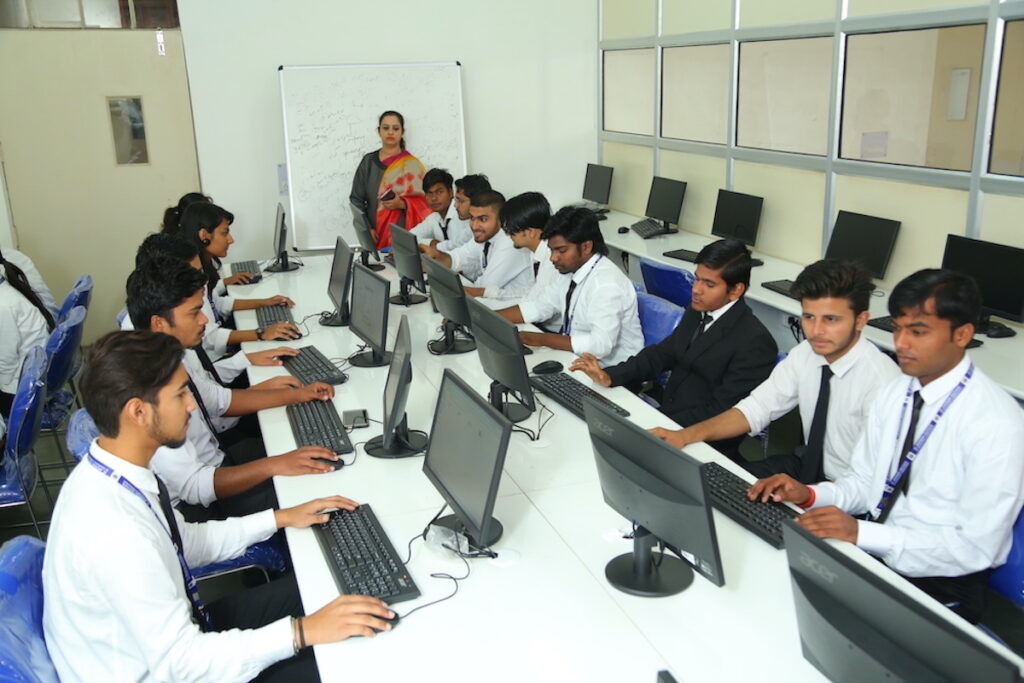
The average salary for MCA (Master of Computer Applications) graduates can vary depending on factors such as experience, location, job role, and the hiring company.
Here’s a general overview of average salary ranges for MCA graduates in India:
Entry-Level (0-2 years experience):
Range: ₹3.5 lakh to ₹6 lakh per annum
Overview: Entry-level positions such as Software Developer, Web Developer, and System Analyst typically fall within this range.
Mid-Level (3-5 years experience):
Range: ₹6 lakh to ₹10 lakh per annum
Overview: With experience, roles such as Senior Software Developer, Project Manager, and DB Administrator offer salaries within this range.
Senior-Level (5-10 years experience):
Range: ₹10 lakh to ₹18 lakh per annum
Overview: Senior roles such as IT Manager, Senior Systems Analyst, and Lead Developer are compensated within this range.
Specialized Roles:
Data Scientist: ₹8 lakh to ₹20 lakh per annum
Cybersecurity Specialist: ₹7 lakh to ₹15 lakh per annum
Cloud Computing Specialist: ₹8 lakh to ₹18 lakh per annum
Top Companies:
Tata Consultancy Services (TCS): ₹4 lakh to ₹6 lakh (entry-level)
Infosys: ₹3.5 lakh to ₹6 lakh (entry-level)
Wipro: ₹4 lakh to ₹6 lakh (entry-level)
Cognizant: ₹4 lakh to ₹6 lakh (entry-level)
Accenture: ₹5 lakh to ₹7 lakh (entry-level)
FAQs
What does MCA stand for?
MCA stands for Master of Computer Applications.
What is the duration of an MCA course?
Typically, the MCA course duration is 2 to 3 years, depending on the institution and the specific program. Online MCA also have same duration.
What is the main focus of an MCA program?
An MCA program is a professional course primarily focuses on computer applications, software development, programming, and it sector.
Is an MCA equivalent to an MBA in IT?
No, an MCA is a specialized professional degree in computer applications and software development, while an MBA in IT focuses on management aspects of information technology.
What are the eligibility criteria for an MCA program?
Generally, a candidate needs to have a bachelor’s degree in a related field, such as BCA, BSc in Computer Science, or equivalent, with a minimum percentage as specified by the institution.
Can MCA graduates work in non-IT sectors?
Yes, while MCA is IT-focused, graduates can work in various sectors, including finance, education, and healthcare, in roles related to IT management and software development.
What are the career opportunities after completing an MCA?
Career opportunities include roles such as software developer, system analyst, IT consultant, DB administrator, and project manager, among others.
Is MCA a good option for career growth?
Yes, MCA can provide significant career growth opportunities in the IT industry due to the advanced knowledge and skills it imparts.
Can MCA be pursued through distance education?
Yes, many universities offer MCA programs through distance or online education.
What are some top MCA colleges offering MCA programs?
Some top institutions offering the MCA Full Form, Master of Computer Applications, include Delhi University, Jadavpur University, and Indira Gandhi National Open University (IGNOU), among others.
What is the MCA qualification?
The MCA qualification, with the MCA Full Form being Master of Computer Applications, is a postgraduate degree focused on advanced learning in computer science, software development, and IT applications.
Can we do MCA after 12th?
No, you cannot directly pursue MCA after 12th. The MCA Full Form, Master of Computer Applications, is a postgraduate program that typically requires a bachelor’s degree in a related field, such as BCA or B.Sc in Computer Science.
Is MCA a good degree?
Yes, the MCA Full Form, Master of Computer Applications, is a highly regarded degree, offering strong career prospects in software development, IT management, and other tech-related fields.
What does MCA mean?
MCA means Master of Computer Applications. The MCA Full Form represents a postgraduate degree focused on computer science, software development, and IT applications.
What is the use of MCA degree?
The MCA Full Form, Master of Computer Applications, is a postgraduate degree that equips students with advanced knowledge in computer science, software development, and IT applications, leading to diverse career opportunities in the tech industry.
What is MCA in salary?
MCA graduates, with the MCA Full Form being Master of Computer Applications, typically earn competitive salaries, with entry-level positions offering between ₹3 to ₹8 lakhs per annum in India, depending on the role and company.
What is the qualification of MCA?
The qualification for pursuing MCA, with the MCA Full Form being Master of Computer Applications, typically includes a bachelor’s degree in a related field, such as BCA, B.Sc in Computer Science, or a similar discipline, along with meeting specific entrance exam requirements.
What is the meaning of MCA job?
An MCA job, with the MCA Full Form being Master of Computer Applications, refers to a professional role in the IT and software development industry, where individuals apply their advanced knowledge in computer science, programming, and application development.


